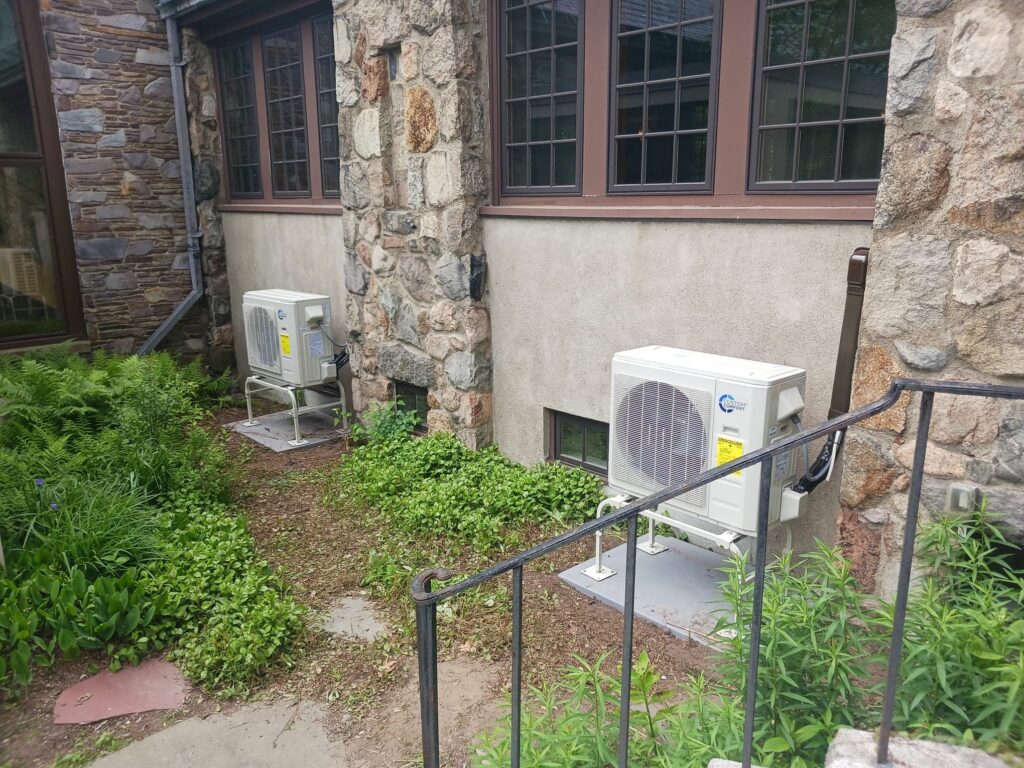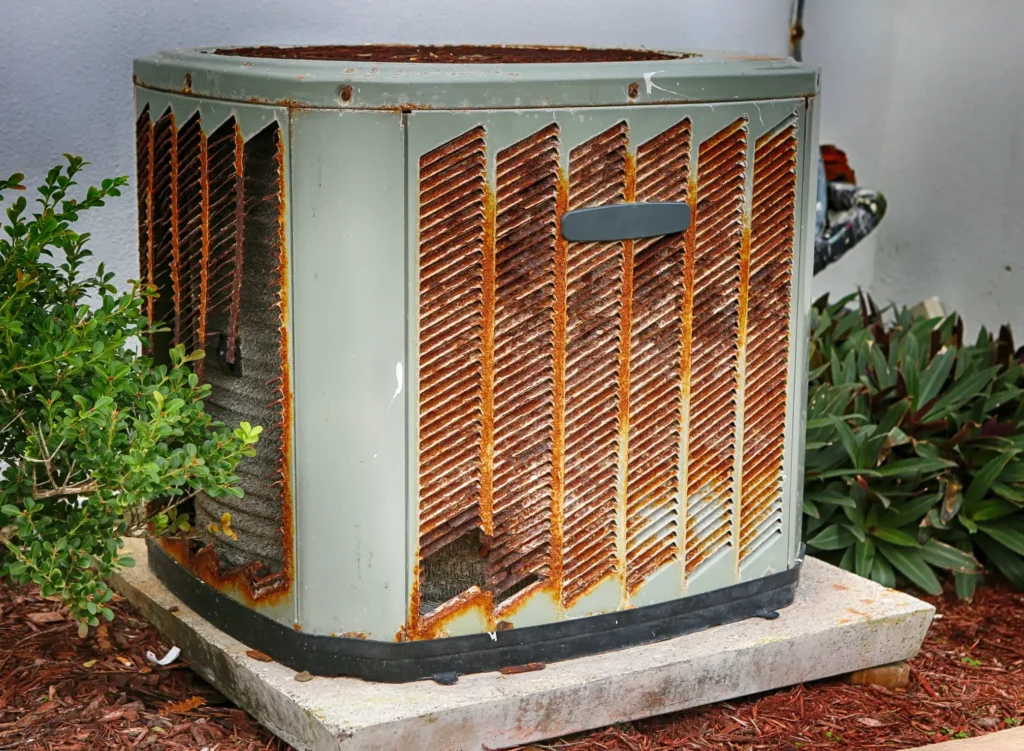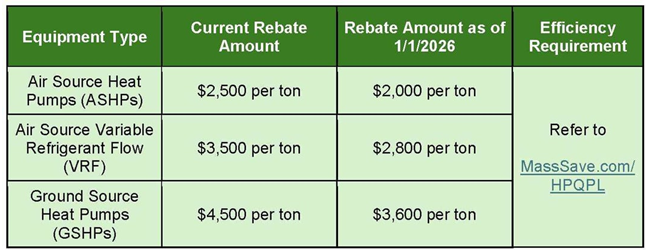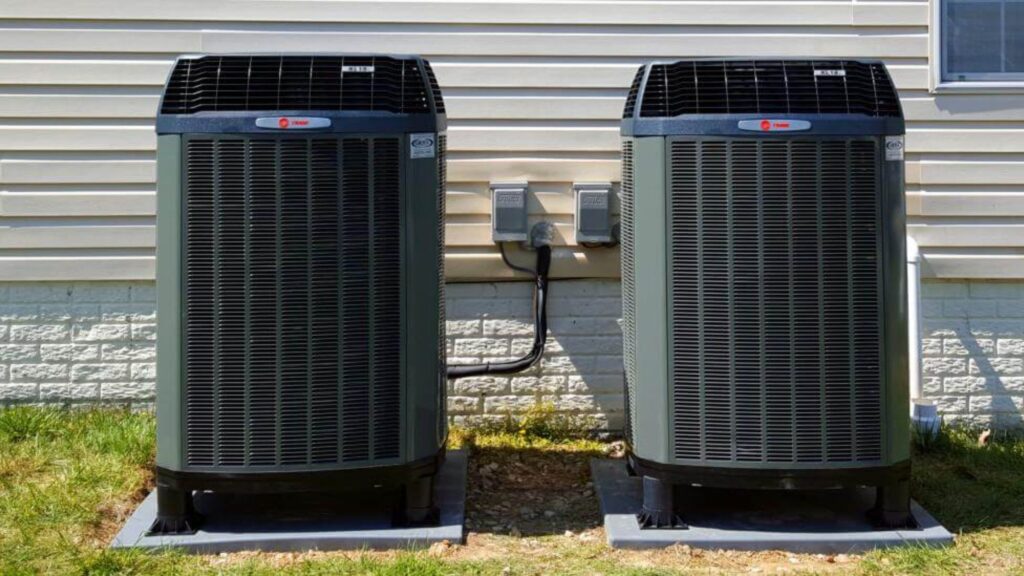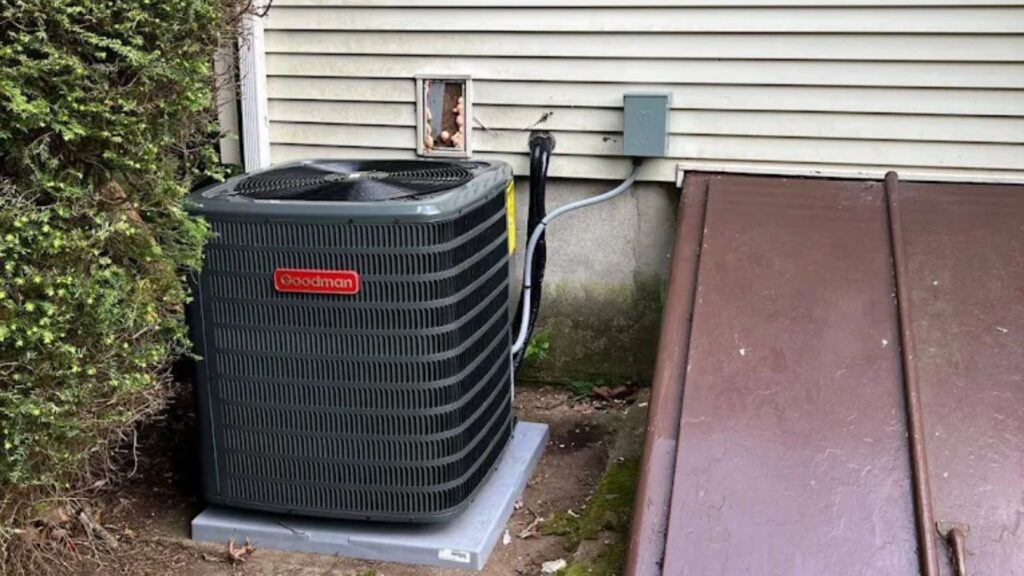Why Your 1980s Heat Pump is Costing Newton and Wellesley Homeowners Thousands Every Year
Last week, our Sales Manager Nick met with a homeowner in Newton whose 1983 heat pump finally gave up during a heat wave. When he showed her what she could expect to pay with a modern system, she practically fell out of her chair. “You mean I’ve been throwing away $150 every month for the past five years?”
Her reaction isn’t unusual. We see it all the time across Newton, Wellesley, Framingham, and surrounding towns – homeowners still running heat pumps that were cutting-edge when MTV actually played music videos. The gap between what those systems could do and what’s available today? It’s honestly shocking.
And we’re not just talking about comfort here. We’re talking about real money – the kind that shows up on those Eversource and National Grid bills that seem to get more painful every month.
Table of Contents
ToggleWhat Four Decades of Massachusetts Winters Have Taught Us
Here’s what we know about heat pumps from the Reagan era: they were pretty impressive in 1983, but Massachusetts winters were already pushing them to their breaking point. Our technicians who’ve been at this for over twenty years hear the same complaints constantly.
“It works great until December, then our electric bill goes crazy.”
“The house is freezing, but the thing runs non-stop.”
Ring any bells?
The Numbers: 7 SEER vs. 22 SEER
Let me give you some perspective with actual numbers from jobs we’ve done recently. Those 1980s heat pumps typically run at about a 7 SEER rating. The systems we’re putting in around Lexington and Concord these days? They’re hitting 18-22 SEER ratings without breaking a sweat.
Here’s what that means in your wallet:
- A colonial in Wellesley dropped from $340/month to $120/month for winter heating
- A ranch in Framingham went from $280/month down to $95/month
- A cape in Sharon cut their bills from $310/month to $110/month
Why Old Heat Pumps Struggle in New England
The real problem with these older systems isn’t just their age – they were never built for the kind of cold we get here. Once temperatures drop below 35°F, they start losing steam fast. Hit 20°F (which happens plenty from December through February), and you’re basically running the world’s most expensive space heater.
I’ll never forget this service call in Boston during that brutal cold snap we had this past winter. The homeowner’s 1986 heat pump was sucking down 15 kilowatts just to keep the house at 65°F. Picture running 15 space heaters at once – that’s what we’re dealing with.
Modern cold-climate heat pumps? They keep cranking efficiently down to -15°F. We’ve got customers in Braintree (a neighbor actually) telling us their new systems handled those single-digit nights we had this past winter like champs while another neighbor with older units were asking me about emergency service in the January cold snap.
Modern Heat Pump Technology: Built for Massachusetts
Why Variable Speed Technology Changes Everything
Old heat pumps from the 80s? They had two settings: hurricane mode or dead stop. The new ones are completely different – they adjust their speed constantly based on what your house actually needs. This is massive when you live somewhere like Massachusetts where Tuesday could be 65 degrees and Thursday drops to 25.
What we see in real homes is pretty dramatic. Your thermostat doesn’t bounce around anymore – it stays put within a degree of where you set it. Those colonial houses in Newton with rooms that used to be freezing while others roasted? That’s mostly gone now. And the noise difference is night and day – these new units are so quiet you’ll forget they’re running.
The humidity thing is huge too, especially during those sticky July weeks. Plus when you’re that much more efficient, you maximize whatever rebate money you can get.
Smart Features That Actually Work
If you’re like most people around here, you’re probably commuting into Boston or working crazy hours. These new heat pumps connect to your phone so you can adjust things from anywhere. They learn when you’re usually home and away, and some even check Logan Airport weather to get ready for temperature changes.
What really impressed me recently was watching one of our techs diagnose a customer’s system from the office. The homeowner in Wellesley called about weird noises, and our guy could see exactly what was happening through the system’s diagnostics without even leaving his desk. Fixed it remotely before it became a real problem.
The Refrigerant Situation
Here’s something most people don’t think about – those old systems ran on R-22 refrigerant, which you literally can’t get anymore. It’s been banned. So if your old system springs a leak, you’re looking at either expensive black market refrigerant or a complete system replacement anyway.
The new refrigerants (R-410A, R-32, R-454B) aren’t just better for the environment – they actually work better in cold weather. Sometimes regulations end up being upgrades in disguise.
Why Modern Systems Last Longer Here
Built for New England Punishment
I’ve been doing this long enough to remember when heat pumps were considered a southern thing. The early ones that made it up here got beaten up pretty badly by our winters. Twelve to fifteen years was about all you could expect, and that was if you babied them.
These new ones are engineered specifically for places like Massachusetts. They handle the temperature swings, the road salt in the air, the humidity changes from season to season. We’re seeing lifespans of 15-20+ years routinely now, sometimes longer.
Way Less Drama with Maintenance
Remember how those old systems seemed to need attention every other month? The new ones are built differently. Better filtration handles our legendary spring pollen (anyone with oak trees knows what I’m talking about). Self-diagnostic systems catch problems early instead of waiting for complete breakdowns.
I was talking to Mike, one of our longtime service techs, last week. He said his emergency calls for modern heat pumps are maybe a quarter of what he used to get for the old systems. Even during those brutal cold snaps, the new ones just keep working.
What It Means for Your Bank Account
The Monthly Bill Difference is Real
Here’s what happens when you swap out an 80s heat pump for a modern one – your heating and cooling costs drop by half or more. We see it constantly. With National Grid and Eversource rates being what they are, that translates to $100-200 less per month during heating season for most homes around Newton and Wellesley.
The Rebate Situation is Actually Pretty Great
Massachusetts has some of the most generous heat pump incentives in the country, which helps offset the upfront cost. Mass Save’s whole home heat pump rebate is up to $10,000 for qualifying customers & installations. Many municipal electric companies (Wellesley’s WMLP heat pump rebate program for example) match the Mass Save rebate If you qualify as low-to-moderate income, there are additional programs available.
Through the end of 2025, the federal government throws in tax credits up to $2,000 for ENERGY STAR units, plus additional IRA credits of up to $1,200 if you need electrical upgrades.
What This Does to Your Home Value
Here’s something that might surprise you – modern, efficient heat pumps actually add significant value to your home. This matters especially around Newton and Wellesley where buyers expect energy-efficient systems as standard equipment, not luxury features.
Real estate data shows heat pump systems can increase home resale value by 3-7% in the Metro Boston area. When median home values are over $800,000 in many of these communities, we’re talking about $25,000-40,000 in added value. Not bad for an upgrade that also cuts your monthly bills.
Comfort You’ll Actually Feel
No More Temperature Roller Coaster
Modern heat pumps keep your house at a steady temperature without those wild swings you get from 1980s systems during our unpredictable spring and fall weather. They run longer at lower speeds, giving you continuous comfort.
Cleaner Air for Allergy Season
Today’s filtration systems are light-years ahead of what we had in the 80s. They actually remove the oak, maple, and birch pollen that makes life miserable around here, plus dust and other stuff floating around.
Quiet Enough for Close Neighbors
Modern units run at 50-60 decibels – a big deal in neighborhoods like Framingham, Sharon, and Braintree where houses are close together. That’s a major improvement from those old systems that sounded like jet engines.
Making the Call on Your Old System
Time to Pull the Plug?
If you’ve got a 1980s heat pump, it’s probably time to start shopping, especially if you’re dealing with:
- Electric bills that keep climbing for no good reason
- Constant repairs during heating season
- Some rooms freezing while others are fine
- Poor performance when it gets really cold
- Expensive R-22 refrigerant leaks
Picking the Right Modern System
Today’s market has options designed specifically for our climate:
- Cold-climate heat pumps that laugh at Massachusetts winters
- Ductless mini-splits perfect for older homes in historic areas
- Geothermal systems for maximum efficiency (if you’ve got the yard space)
- Hybrid systems with backup for those brutal cold snaps
Getting It Done Right
Modern heat pumps need proper installation to work right in our climate. Refrigerant charging for cold weather, airflow calculations for our humidity, smart thermostat setup – it all matters for getting the full benefit.
You want a Massachusetts-licensed contractor who knows local codes, permit requirements, and utility procedures. Every town has its quirks, from Newton’s historic district rules to Wellesley’s zoning requirements.
Local Support When You Need It
Choose a contractor with real Massachusetts experience serving Newton, Wellesley, Framingham, Lexington, Concord, Northborough, Sharon, and Braintree. Local knowledge means:
- Quick emergency service during winter storms
- Understanding utility programs and rebate processes
- Knowledge of local permit requirements
- Experience with neighborhood-specific challenges
- Ongoing support through our demanding seasons
The Bottom Line
Going from a 1980s heat pump to a modern system is honestly a game-changer if you’re dealing with high energy costs and tough New England weather. With energy savings of 50-70%, substantial rebates, better comfort during weather extremes, and improved reliability, upgrading from 1980s technology is one of the smartest moves Newton, Wellesley, and Metro Boston homeowners can make.
Modern heat pumps deliver the comfort, efficiency, and reliability Massachusetts families need. Making the jump from 1980s technology isn’t just about saving money – it’s about finally having a system that works the way it should.
Ready to see what modern heat pump technology can do for your home? Contact Endless Energy – we’re your local specialists serving Newton, Wellesley, Framingham, Lexington, Concord, Northborough, Sharon, and Braintree. We’ll give you a free consultation and show you exactly how much you could save by ditching that outdated system.
Stop Letting Your Old Heat Pump Drain Your Wallet. Every month you wait could be another $150+ in wasted energy. Call 508-233-8462 or schedule your free consultation online today. We’ll calculate your potential savings, walk you through rebate options, and design a system built for Massachusetts winters.
